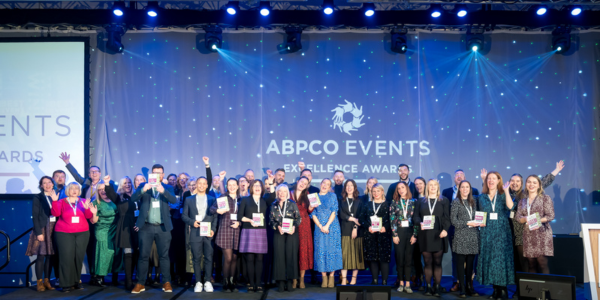
A roundtable discussion on creating effective partnerships between professional conference organisers and higher education institutions was held this week at the University of West of Scotland.
Around 20 industry figures gathered on Tuesday for an interactive session on the role of PCOs (Professional Conference Organisers) and how they can best work with universities and their in-house events teams to add value to academic association conferences.
Facilitated by Aileen Crawford, Head of Conventions at Glasgow Convention Bureau, and organised by the Association of British Professional Conference Organisers (ABPCO), the event was part of a series of UK-wide engagement roadshows to develop closer links with academics and also to assist event management students to gain a better understanding of the PCO role.
Heather Lishman, Association Director at ABPCO, which is celebrating its 30th year, said: “We’re here to not only hopefully demonstrate the role of PCOs, and how they can add value to an academic conference, but also to show students the sort of skills they need, the basic fundamentals to become a professional conference organiser. So, we decided to get the professionals together to discuss a topic and then in the afternoon open it up to the students to show how they can work together and give them the benefit of that professional insight.”
She added: “It’s just to show the students how much of a business side there is to events management; we wanted to give students an insight into the world of business events and maybe show them there is an alternative to the social side – which is working with multi-million pound budgets, collaboration with professionals, the understanding of what’s going on in the economy and what research is coming out of universities and how you work with different sectors. As a professional conference organiser you’ve got to be in the middle of all that so you’ve got to have a broad economic understanding as well.”
The opening session in the Court Room of the Brough Building on the university’s Paisley campus began with a presentation from Prof. Craig Mahoney, Principal & Vice Chancellor of UWS.
He spoke clearly about the need to professionalise the conference organising process from a university’s perspective after UWS tried and failed to win the Annual Congress of the European College of Sport Science (ECSS) two years ago.
Undaunted, Prof. Mahoney – whose own academic discipline is sports science – decided to lead a fresh bid with the support of Glasgow Convention Bureau and the SEC and a follow-up attempt in front of a panel of international judges in Vienna last year saw UWS secure the event for Scotland for the first time, and only the second time for the UK as a whole.

Prof. Mahoney – who took the unsual step for a Principal by personally taking part in the bid – said the submission had ‘blown away’ the judges despite the hiccup of having been told when they turned up for their presentation slot that they were ‘not expected that day’. After providing evidence in the form of a paper trail, Prof. Mahoney and two members of staff from Glasgow Convention Bureau were allowed to go ahead.
The event is now due to come to Glasgow in 2021 with an anticipated 4,500 delegates, which will bring an estimated £4m in economic impact to the city; UWS itself is expecting to host some of the associated events of the congress at its brand new Hamilton campus, due to open next year, but the main plenary sessions will take place at the SEC. Prof. Mahoney said it was a ‘huge opportunity’ for Paisley – which is pushing for a UK City of Culture bid in 2021 – and Glasgow as a whole, which he praised for its conference infrastructure and also the Convention Bureau team for their professionalism.
Speaking after the event, Campbell Arnott, International Business Development Manager at Glasgow Convention Bureau, who was part of the bid team, said: “What Professor Mahoney said was absolutely right. They were genuinely blown away by the fact they had the Principal there, they’d never had that before and I think that showed the real desire from the university.
He added: “This is also quite an exciting conference to have won; around 40% of the delegates are under 35 so it’s a really youthful, energetic conference and I think the vibrancy will really fit well with the experience of Glasgow.”
Following the presentation by Prof. Mahoney, industry professionals discussed the use of PCOs in the organisation of conferences. Not all universities contract the services of professional PCOs, and use their own in-house teams of events staff, some of which are ABPCO members.
However, the ABPCO members who take part in the discussion pointed to some of the skills areas where they are best positioned to add value to the process of organising an academic conference. Those included budgeting, compliance and, increasingly, digital marketing. The room took the view that a successful conference often depended on the interpersonal relationships struck between the academic – who may struggle to ‘let go’ of control what they perceive as ‘their conference’ – and the conference organiser, whether they be in-house or a PCO company.



